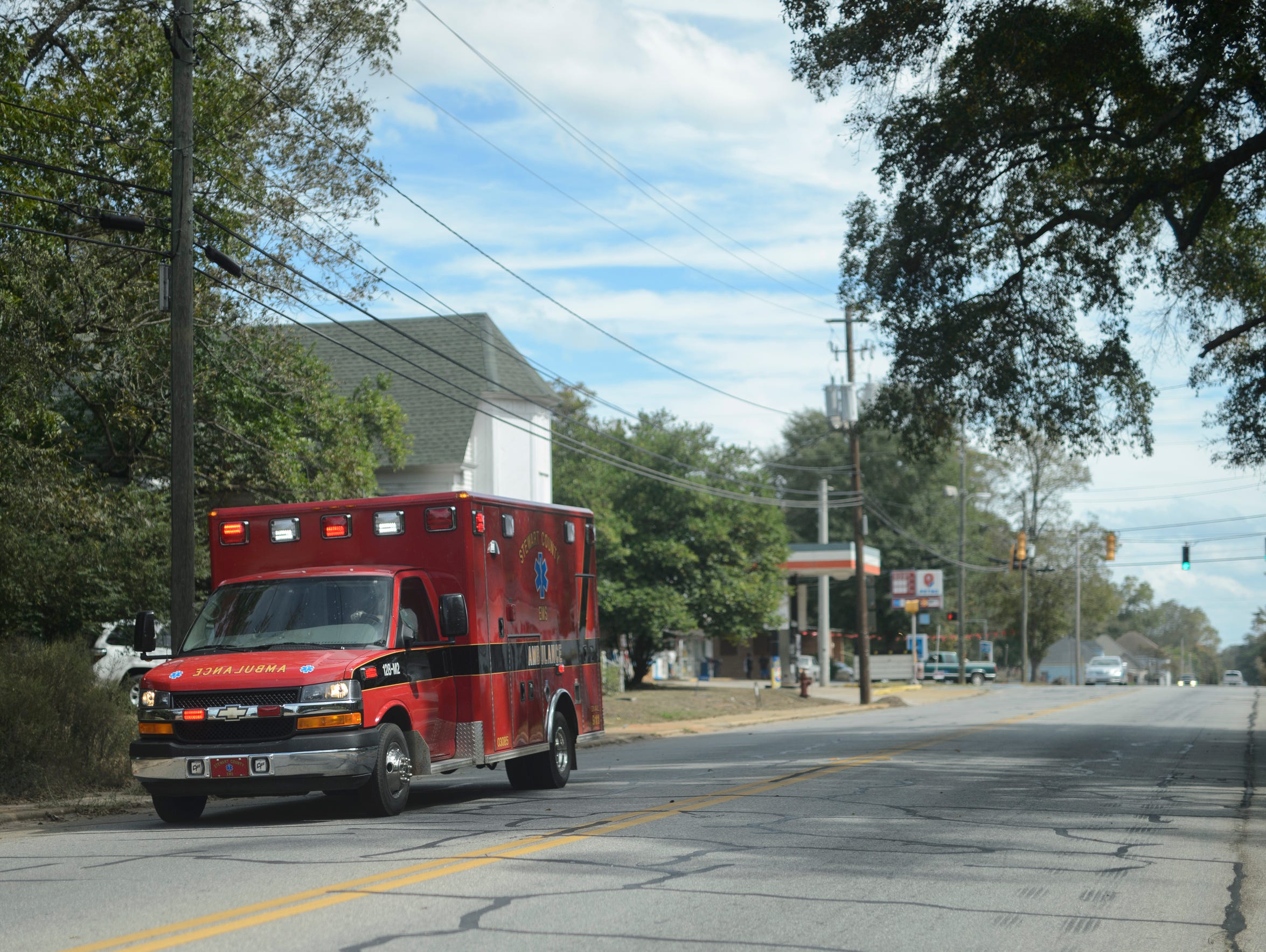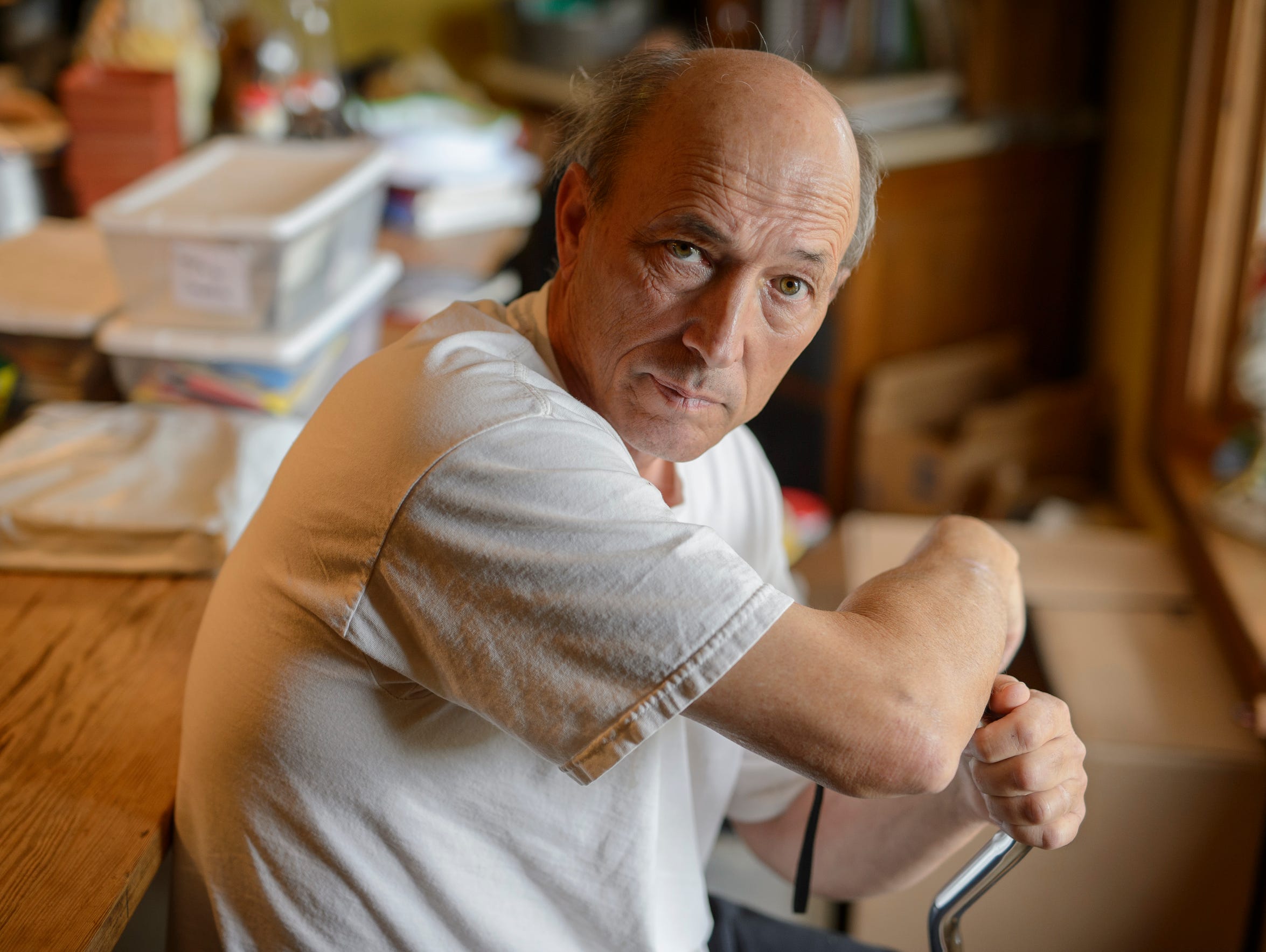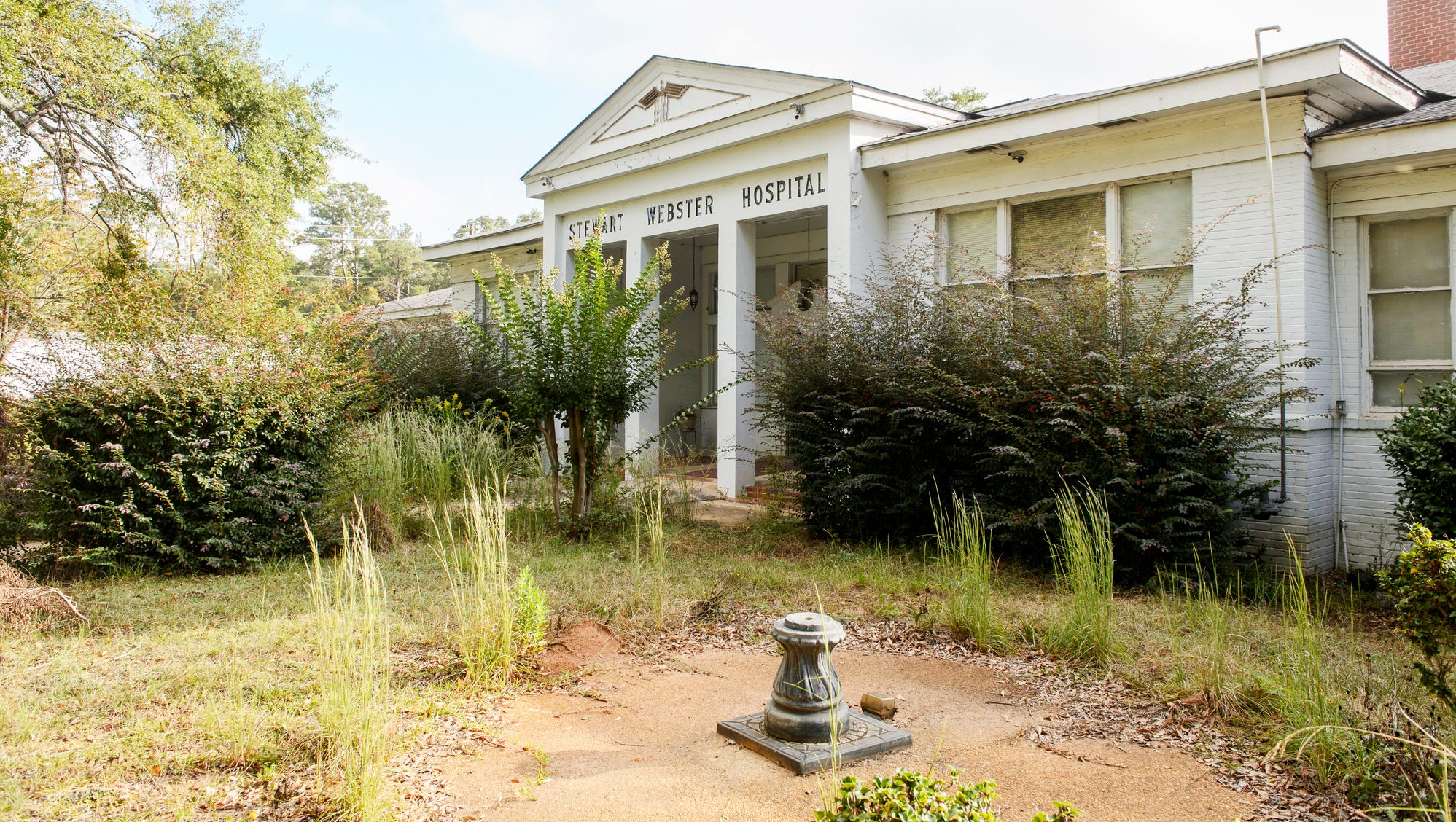Stewart-Webster Hospital had only 25 beds when it still treated patients. The rural hospital served this small town of 1,400 residents and those in the surrounding farms and crossroads for more than six decades.
But since the hospital closed in the spring of last year, many of those in need have to travel up to 40 miles to other hospitals. That's roughly the same distance it takes to get from Times Square to Greenwich, Conn., or from the White House to Baltimore, or from downtown San Francisco to San Jose.
 |
| Stewart County EMS on a run in downtown Richland, Ga. The two ambulances are often tied up making the average 90-mile round trip to the nearest hospital. |
Those trips would be unthinkable for city residents, but it's becoming a common way of life for many rural residents in this state, and across the nation.
Since the beginning of 2010, 43 rural hospitals — with a total of more than 1,500 beds — have closed, according to data from the North Carolina Rural Health Research Program. The pace of closures has quickened: from 3 in 2010 to 13 in 2013, and 12 already this year. Georgia alone has lost five rural hospitals since 2012, and at least six more are teetering on the brink of collapse. Each of the state's closed hospitals served about 10,000 people — a lot for remaining area hospitals to absorb.
The Affordable Care Act was designed to improve access to health care for all Americans and will give them another chance at getting health insurance during open enrollment starting this Saturday. But critics say the ACA is also accelerating the demise of rural outposts that cater to many of society's most vulnerable. These hospitals treat some of the sickest and poorest patients — those least aware of how to stay healthy. Hospital officials contend that the law's penalties for having to re-admit patients soon after they're released are impossible to avoid and create a crushing burden.
 |
| Walter Skellie recovers at his Richland, Ga., home after suffering strokes following his 45-minute ride to the nearest hospital earlier this fall. He recently returned to work. |
"The stand-alone, community hospital is going the way of the dinosaur," says Angela Mattie, chairwoman of the health care management and organizational leadership department at Connecticut's Quinnipiac University, known for its public opinion surveys on issues including public health.
The closings threaten to decimate a network of rural hospitals the federal government first established beginning in the late 1940s to ensure that no one would be without health care. It was a theme that resonated during the push for the new health law. But rural hospital officials and others say that federal regulators — along with state governments — are now starving the hospitals they created with policies and reimbursement rates that make it nearly impossible for them to stay afloat.Read the rest of this USA Series HERE.
If you like what you see, please "Like" us on Facebook either here or here. Please follow us on Twitter here.


No comments:
Post a Comment